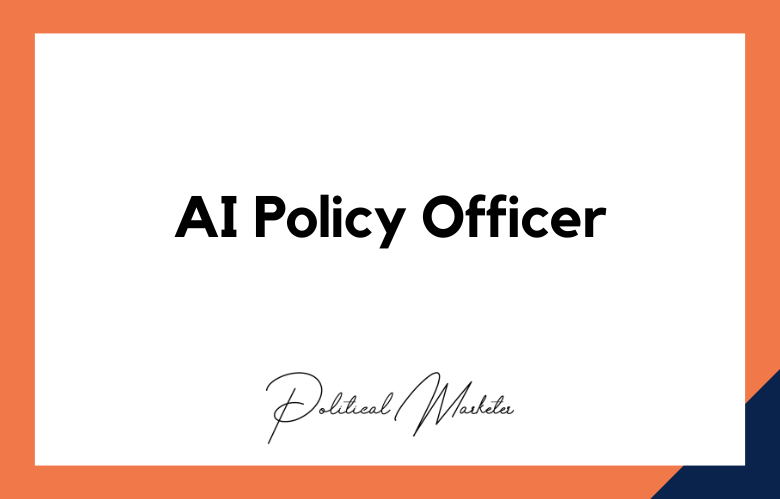Ethical decision-making in political campaigns is increasingly critical in an era where digital strategies, data analytics, and artificial intelligence play pivotal roles in shaping electoral outcomes.
Ethical Decision-Making for Political Campaign: Importance & Strategies
As campaigns harness sophisticated technologies to gain insights into voter behavior, target communications, and influence public opinion, they must navigate a complex ethical landscape. This involves balancing the drive to win elections with a commitment to fairness, transparency, honesty, and respect for voter privacy and democratic principles.
Ethical decision-making in this context demands a principled approach to strategy development and execution. This ensures that campaigns comply with legal standards and uphold higher ethical values. This includes responsible data handling, avoiding misinformation, respecting the diversity of the electorate, and engaging in fair competition.
Digital tools and platforms introduce new ethical challenges, from the potential for algorithmic bias in voter targeting systems to the moral implications of social media manipulation. Addressing these challenges requires a comprehensive ethical framework, clear guidelines, and a culture of accountability within campaign teams.
In essence, ethical decision-making for political campaigns is about forging a path that respects the democratic process and voters’ trust in electoral systems. By prioritizing ethical considerations, campaigns can contribute to a more informed, respectful, and engaging political discourse, ultimately strengthening the democratic fabric.
- Key Takeaways
- Importance of Ethical Campaigning
- Navigating Ethical Dilemmas in Politics
- Fundraising with Integrity
- Ethical Communication Strategies
- Conduct Guidelines for Political Campaigns
- Financial Integrity in Campaigning
- Establishing Ethical Standards
- Case Studies: Ethics in Action
- Practical Guidelines for Ethical Campaigning
- Summary
- Frequently Asked Questions
- How can ethical decision-making benefit a political campaign?
- What are some key elements to consider when navigating ethical dilemmas in politics?
- Why is fundraising with integrity important for a political campaign?
- How can ethical communication strategies impact the success of a political campaign?
- What role does financial integrity play in the overall success of a political campaign?
In the realm of political campaigns, navigating ethical decision-making is paramount. Upholding moral standards while strategizing and executing campaign tactics is crucial for fostering trust and credibility with the public. Understanding the historical context of ethical dilemmas in political campaigns provides insights into the evolution of standards and practices.
By delving into past scenarios where ethical boundaries were tested, we can glean valuable lessons to inform present-day decision-making processes. Join us as we explore the intricate landscape of moral decision-making in political campaigns, dissecting challenges and solutions that shape the course of modern political discourse.
Key Takeaways
- Prioritize Integrity: Upholding ethical standards in political campaigns is crucial for maintaining trust and credibility with voters.
- Navigate Gray Areas: When faced with ethical dilemmas, consider the long-term implications and opt for transparency and honesty.
- Transparent Fundraising: To avoid controversies, ensure fundraising practices are transparent, legal, and in accordance with ethical standards.
- Clear Communication: Adopt transparent and honest communication strategies to build trust and credibility with the public.
- Adhere to Guidelines: Follow established conduct guidelines for political campaigns to uphold ethical practices and avoid misconduct.
- Financial Accountability: Maintain financial integrity by accurately reporting campaign finances and adhering to legal requirements.
Importance of Ethical Campaigning
Public Trust
Ethical campaigning is crucial for building public trust in politics. When candidates engage in ethical practices, it enhances transparency and accountability.
Maintaining integrity in political campaigns reassures the public that candidates are honest and have their best interests at heart, fostering a sense of confidence among voters.
Candidate’s Reputation
Ethical behavior plays a significant role in shaping the candidate’s reputation and credibility. Voters are more likely to support candidates who demonstrate integrity and moral values.
Candidates prioritizing ethics are viewed as trustworthy leaders committed to upholding principles and serving the public good. This enhances their standing in the eyes of the electorate.
Long-Term Benefits
Prioritizing ethics in political campaigns yields long-term benefits for candidates. It establishes a strong foundation of trustworthiness that can endure beyond the election cycle.
Candidates known for their ethical conduct are more likely to attract support from a broad spectrum of voters, including those prioritizing integrity in leadership.
Navigating Ethical Dilemmas in Politics
Identifying Dilemmas
Political campaigns often present complex ethical dilemmas that can challenge the integrity of the individuals involved. In the heat of campaigning, it’s crucial to identify these dilemmas early on.
Ethical dilemmas may arise when balancing transparency with strategic advantage or deciding between truthfulness and political expediency. These situations require careful consideration and a commitment to moral principles.
Resolving Dilemmas
When faced with an ethical dilemma during a political campaign, it is essential to prioritize values over short-term gains. Consulting with ethics experts or mentors can provide valuable insights into resolving these challenging situations.
One effective strategy for resolving ethical dilemmas is to consider each decision’s potential consequences. Candidates can make more informed and ethical choices by evaluating the long-term impact on stakeholders and the public.
Importance of Integrity
Maintaining integrity is paramount in political campaigns as it builds trust with constituents and demonstrates a commitment to ethical leadership. Upholding integrity requires consistent adherence to moral principles, even in adversity.
Candidates who prioritize integrity are more likely to earn respect from voters and establish a reputation for honesty and reliability. This reputation can be a powerful asset in gaining public support and fostering long-term relationships with constituents.
Fundraising with Integrity
Ethical Considerations
When soliciting campaign donations, it is crucial to consider the source’s reputation and interests. Accepting funds from controversial or unethical entities can tarnish the campaign’s image.
Maintaining ethical standards involves avoiding conflicts of interest and ensuring that donations align with the campaign’s values. Transparency in fundraising practices fosters trust among supporters.
Importance of Transparency
Transparent financial practices are essential for demonstrating accountability to donors and the public. Disclosing all contributions, regardless of size, promotes integrity within the campaign.
Ensuring the responsible use of funds involves regularly reporting on expenditures and adhering to legal requirements. By prioritizing transparency, campaigns uphold ethical principles.
Setting Limits Ethically
Establishing clear guidelines for fundraising activities helps prevent ethical lapses. Limiting individual contributions and refusing donations from questionable sources safeguard the campaign’s integrity.
Ethical Communication Strategies
Transparency
Transparency is critical in ethical communication for political campaigns. Candidates should disclose information clearly to build trust with voters.
Maintaining transparency involves providing accurate details about campaign finances, policies, and intentions. Candidates who are transparent can foster credibility and show accountability to the public.
Negative Campaigning
Negative campaigning, while joint, raises ethical concerns in political communication. It involves attacking opponents rather than focusing on one’s own merits.
The ethical dilemma lies in the potential for misleading or manipulating voters through negative messaging. Candidates must weigh the impact of such tactics on their integrity.
- Pros:
- Can highlight significant policy differences
- May mobilize supporters effectively
- Cons:
- Risks alienating undecided voters
- Can contribute to a toxic political environment
Online and Offline Ethics
In today’s digital age, maintaining ethical standards in online communication is paramount for political campaigns. Social media platforms offer vast reach but also pose risks of spreading misinformation.
Candidates must navigate online spaces ethically by ensuring accuracy in content shared and engaging respectfully with diverse audiences.
On the other hand, offline communication plays a crucial role in reaching traditional voters. Face-to-face interactions allow for personal connections and deeper engagement with constituents, fostering trust and understanding.
Conduct Guidelines for Political Campaigns
Ethical Responsibilities
Political campaigns entail ethical responsibilities for the entire team, from candidates to the supporters. Transparency and honesty in messaging are crucial to maintain public trust.
The candidate must lead by example, adhering to ethical standards in all actions and communications. Supporters should also uphold integrity and avoid spreading misinformation.
Importance of Ethics
Addressing ethics violations promptly is vital to upholding the campaign’s credibility. Any misconduct can tarnish the candidate’s reputation and erode voter confidence.
Maintaining high ethical standards throughout the campaign builds trust with the electorate. It demonstrates integrity and commitment to serving the public good.
Strategies for Handling Damaging Information
When faced with damaging information about opponents, it is essential to handle it ethically. Avoid resorting to smear tactics or spreading false narratives.
One strategy is to focus on policy differences rather than personal attacks. Highlighting contrasting approaches can steer the campaign away from negative tactics.
Another approach is to address the issue directly, acknowledging any legitimate concerns raised. This shows a willingness to engage in honest discourse and transparency.
Financial Integrity in Campaigning
Loaning Considerations
When loaning money for a political campaign, candidates must ensure transparency to avoid conflicts of interest. Self-funding can impact public trust and raise questions about the candidate’s motives.
Candidates should consider obtaining loans from reputable financial institutions to maintain financial integrity. Disclosure of loan details is crucial to uphold transparency and demonstrate accountability to voters.
Transparency and Disclosure
Financial transparency plays a vital role in ethical decision-making for political campaigns. Candidates must accurately disclose all campaign finances, including donations, expenditures, and loans received.
Accurate disclosure builds trust with voters and prevents potential scandals or legal issues. Failure to disclose financial information can lead to public scrutiny and damage the candidate’s reputation.
Guidelines for Responsible Fund Use
Candidates should establish clear guidelines for the responsible use of campaign funds. This includes creating a detailed budget, tracking expenses meticulously, and avoiding misuse of funds.
Regular audits by independent parties can ensure compliance with financial regulations and ethical standards. Candidates can maintain financial integrity throughout their campaigns by following these guidelines.
Establishing Ethical Standards
Leadership Roles
Leaders are crucial in setting the tone for ethical behavior within a political campaign. They must emphasize integrity and transparency to inspire their teams.
Ethical leadership involves setting clear expectations, leading by example, and holding everyone accountable for their actions. Leaders should prioritize ethical decision-making at every level of the campaign.
Responding to Allegations
When faced with ethical allegations, it is essential to respond promptly and transparently. Campaigns should conduct thorough investigations and address any issues openly.
Transparency is critical in maintaining trust with supporters and the general public. Communicating openly about the steps taken to address allegations can help mitigate damage to the campaign’s reputation.
Case Studies: Ethics in Action
Transparency Matters
Transparency is crucial in political campaigns to build trust with the public. Candidates who disclose their funding sources and campaign strategies foster credibility.
Maintaining transparency can lead to increased voter support, as seen in the case of a candidate who openly shared their financial backers and refused donations from questionable sources. This ethical approach resonated with voters and enhanced the candidate’s reputation.
Integrity Wins Votes
Integrity plays a vital role in shaping public perception during political campaigns. Candidates who demonstrate honesty and integrity garner respect from constituents.
In a notable case study, a candidate faced with an ethical dilemma chose to address it openly rather than conceal it. This decision, although challenging at first, ultimately earned the candidate widespread praise for their integrity and commitment to ethical conduct.
Practical Guidelines for Ethical Campaigning
Transparency
Maintaining transparency is crucial in ethical campaigning. Candidates should disclose all sources of funding to ensure accountability.
Accountability
Candidates must establish clear lines of accountability within their campaign teams. Regular audits and checks can help prevent unethical practices.
Fairness
Ensuring fairness in the campaign process is essential. Treat all candidates equally and avoid spreading misinformation about opponents.
Communication
Open and honest communication with the public is vital. Provide accurate information, respond to queries promptly, and address voters’ concerns.
Compliance
Adhering to all compliance regulations is non-negotiable. To avoid legal issues, familiarize yourself with local political campaign laws and rules.
Maintaining a high standard of ethics throughout a political campaign is paramount for building trust with voters and upholding democratic values. By following these practical guidelines, candidates can successfully navigate the complexities of ethical decision-making.
Summary
Navigating ethical dilemmas in political campaigns has taught you the importance of upholding integrity in fundraising, communication, conduct, and financial practices. Establishing and adhering to ethical standards is crucial for fostering trust with voters and maintaining credibility.
By examining case studies and practical guidelines, you can see ethics in action and apply these principles to your campaign strategies. Remember, ethical campaigning benefits your reputation and contributes to a healthier political landscape overall.
Commit to prioritize ethical decision-making in every aspect of your political campaign. Your dedication to transparency and honesty will set you apart as a candidate who values integrity. Embrace these principles as you move forward, knowing that your ethical conduct can inspire others and lead to positive political change.
Ethical Decision-Making for Political Campaign: FAQs
What is ethical decision-making in political campaigns?
It involves choosing strategies and actions that align with integrity, fairness, transparency, and public accountability.
Why is ethics important in political campaigning?
Ethical conduct builds voter trust, upholds democratic values, protects reputations, and prevents manipulation and misinformation.
What are the consequences of unethical campaign behavior?
Unethical practices can lead to public backlash, legal action, media criticism, loss of credibility, and reduced voter support.
How can campaigns integrate ethics into decision-making?
By setting clear ethical standards, conducting risk assessments, applying consistent values, and consulting trusted advisors.
What role does transparency play in ethical political strategy?
Transparency clarifies the source, intent, and accuracy of campaign content, reinforcing accountability and voter trust.
How can campaigns avoid spreading misinformation?
By verifying facts, avoiding misleading content, training staff in media literacy, and prioritizing evidence-based messaging.
Is negative campaigning considered unethical?
Not necessarily. Policy-based critiques are ethical if factual and respectful. Personal attacks and false claims are not.
How do campaign donations relate to ethical practices?
Ethical campaigns accept transparent, legal donations. Undisclosed funding or influence from foreign or illicit sources is unethical.
What is the role of data privacy in campaign ethics?
Campaigns must protect voter data, ensure consent, and comply with data protection laws to maintain ethical integrity.
Can targeted ads be ethical in political campaigns?
Yes, if they are truthful, inclusive, and not designed to manipulate or mislead specific voter groups.
How can political consultants support ethical campaigns?
They advise on compliance, develop responsible messaging, monitor practices, and help prevent unethical tactics.
What are common ethical dilemmas in political marketing?
Dilemmas include balancing persuasion with honesty, using opposition research responsibly, and respecting cultural sensitivities.
How can AI tools be used ethically in political campaigns?
By ensuring transparency, protecting data, avoiding deception, and aligning AI-generated content with campaign values.
Why is ethical leadership essential during political campaigns?
Leaders model integrity, set the ethical tone, and foster accountability across all campaign activities.
How can campaigns train staff in ethical decision-making?
Through codes of conduct, scenario-based learning, workshops, and ongoing discussions on boundaries and values.
Is using emotional appeals in political ads unethical?
Not inherently. Emotional appeals are ethical when rooted in truth and public interest, but unethical if deceptive.
What is ethical crisis management in political campaigns?
It involves admitting fault, communicating transparently, taking corrective action, and maintaining accountability.
How do voter suppression tactics violate ethical principles?
They undermine democracy by intentionally limiting eligible voters’ access to participation and representation.
Can ethical campaigning still be competitive?
Yes. Ethical campaigns can win through honest messaging, positive contrasts, and value-driven engagement.
What are global standards or frameworks for campaign ethics?
Organizations like IFES, UNDP, and national election commissions provide guidelines promoting fair and ethical campaigning.










